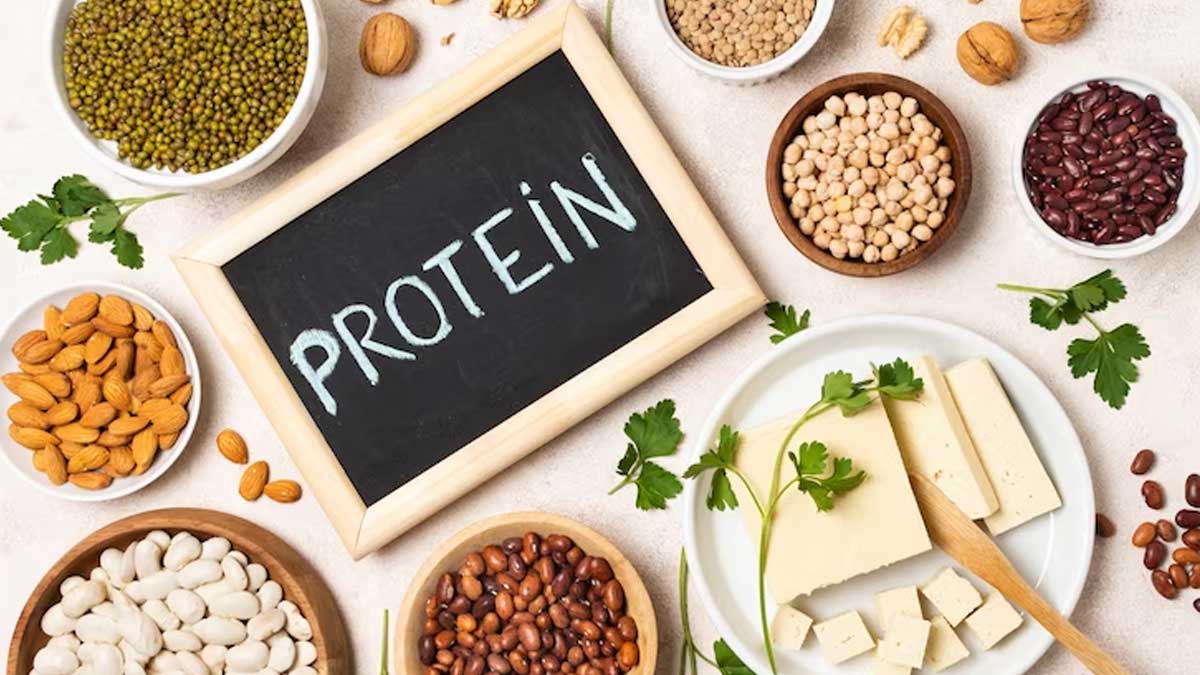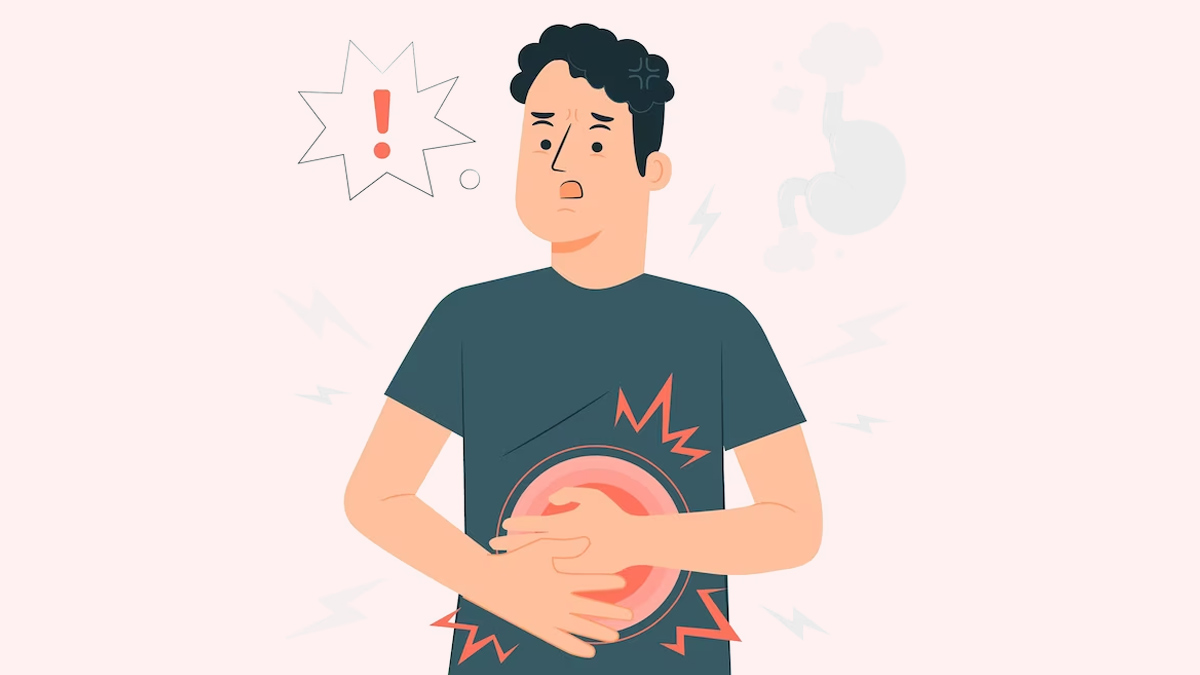
If you’ve ever felt gassy or bloated after a big protein-rich meal or a protein shake, you are not alone. Many people notice more burping or flatulence when they boost their protein intake whether for muscle building, weight loss, or general health. These unwanted side effects can be embarrassing, uncomfortable, and confusing. Why does protein, which is supposed to be good for you, make you gassy?
Table of Content:-
According to Dr Manjula Sridhar, Nutritionist at Apollo Spectra Hospital in Chennai, there are several reasons behind it and some practical ways to reduce the discomfort.
Why Protein Can Lead to Gas and Bloating?
Dr Sridhar explains that not all proteins are equally easy to digest, “People who are lactose intolerant may have a response to whey or casein because the lactose will ferment in the gut, causing an increase of gas.”
Here are some common causes:
- Low levels of digestive enzymes or gut issues can mean more undigested protein passes into the colon. Once there, gut bacteria ferment it and produce gas.
- Some proteins especially certain plant-based sources — are inherently harder to digest, slowing the process and leaving more residue for fermentation.
- Protein powders often contain extra ingredients like artificial sweeteners, gums, or thickening agents that can irritate digestion and promote gas.
ALSO READ: "Why Does My Stomach Feel Tight": Bloating Or Something More Serious?
Does the Type of Protein Matter?
Absolutely. Dr Sridhar says, “Typically, animal proteins will result in easier digestion. While plant protein often comes with fibre to slow digestion or cause gas.”
In short:
- Animal proteins (meat, eggs, dairy) are usually more easily broken down, reducing the amount reaching the colon.
- Plant proteins (legumes, grains, some protein powders) may be harder to digest because of fibre or complex compounds, so more of it gets fermented in the gut, producing gas.
Protein Powders vs Whole Foods: Which Is Easier on Your Gut?
Dr Sridhar cautions that, “Protein powders frequently contain thickeners, sweeteners, and stabilisers. I wouldn’t expect folks would easily tolerate these items. Whole foods usually digest more slowly but may actually lead to more GI distress in a given session.”
In other words:
- Protein supplements may be more concentrated and contain additives that trigger bloating.
- Whole food sources, while more natural, may also overload your gut if eaten in large quantities, especially if you're not used to high amounts.
When Is It Normal and When Is Something Wrong?![]()
Dr Sridhar reassures that, “It is normal to burp after taking protein but if someone often has extreme bloating or discomfort. It often suggests that their body is not optimally digesting or breaking down the protein.”
Key points:
- A little burping is part of digestion, especially after a protein-rich meal.
- Persistent or severe bloating, gas, or discomfort may signal intolerance (like lactose intolerance), low enzyme levels, or imbalanced gut bacteria.
- For people with conditions like IBS, SIBO, or enzyme deficiencies, protein-related gas is more common and may require more careful management.
What Role Does Your Gut Bacteria Play?
Gut microbes are central to this issue. Dr Sridhar explains it simply, “The gut bacteria, then ferment the remains of protein and produce gases during this process. They also metabolise and influence availability and utilisation.”
Here’s how it works:
- After your body digests what it can, any leftover protein reaches the colon.
- Gut bacteria then ferment that residue, producing gases and byproducts like short-chain fatty acids.
- The balance and composition of your gut bacteria influence how much gas is made — and how well your body handles protein.
Who’s More Prone to Protein-Related Gas?
Some people are more likely to experience this than others:
- Those with lactose intolerance, because dairy-based proteins may include lactose.
- People with IBS (Irritable Bowel Syndrome), SIBO, or enzyme deficiencies who have more sensitive digestive systems.
- Anyone who rapidly increases their protein intake — especially with supplements — without easing into it.
How to Reduce Bloating and Gas After Eating Protein![]()
Here are some doctor-recommended strategies to ease digestion:
- Introduce probiotics and prebiotics to help keep gut bacteria balanced.
- Include adequate fibre in your diet to improve digestion.
- Balance your protein intake — don’t overload in a single meal.
- Opt for lactose-free protein sources or isolate forms of whey if lactose intolerance is a concern.
- Slow down when eating — chew thoroughly to help digestion start well.
- Drink plenty of water, which helps everything move smoothly.
ALSO READ: Common Foods That Become Poisonous After Refrigeration: Expert Advice on What to Avoid
Conclusion
Experiencing burps or farts after eating protein is fairly common and often normal. But when the bloating or discomfort persists, it's worth investigating with expert help. As Dr Manjula Sridhar explains, the type of protein, your gut health, and digestion all play a role. With smart food choices, a few tweaks in diet, and possibly some supplements, you can enjoy the benefits of protein — without the embarrassing side effects.
Also watch this video
How we keep this article up to date:
We work with experts and keep a close eye on the latest in health and wellness. Whenever there is a new research or helpful information, we update our articles with accurate and useful advice.
Current Version
Nov 22, 2025 15:05 IST
Published By : Vivek Kumar

